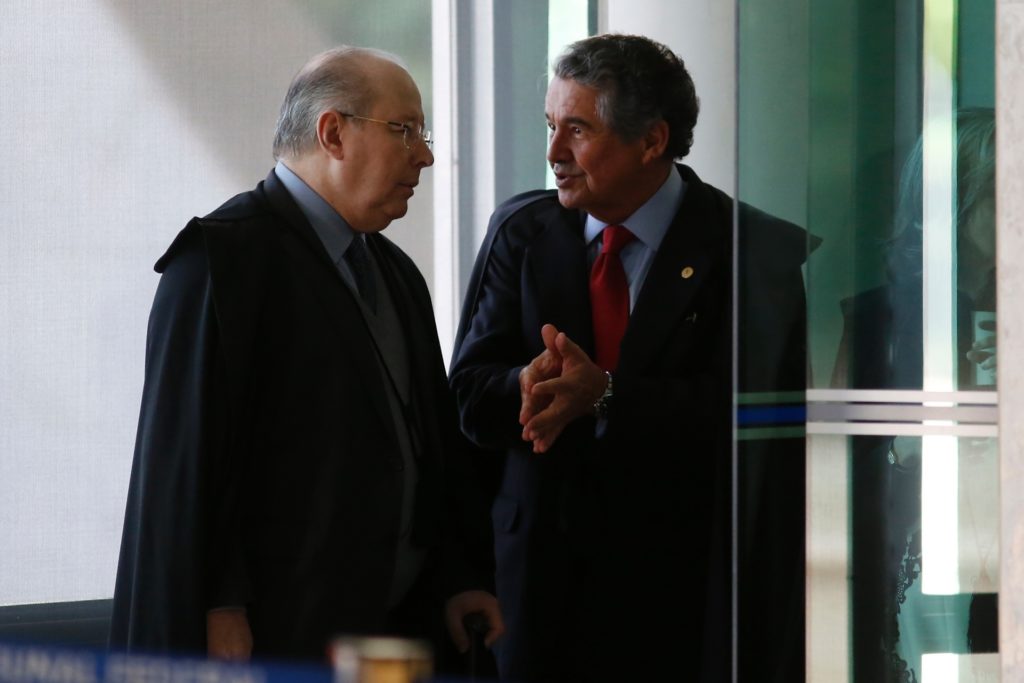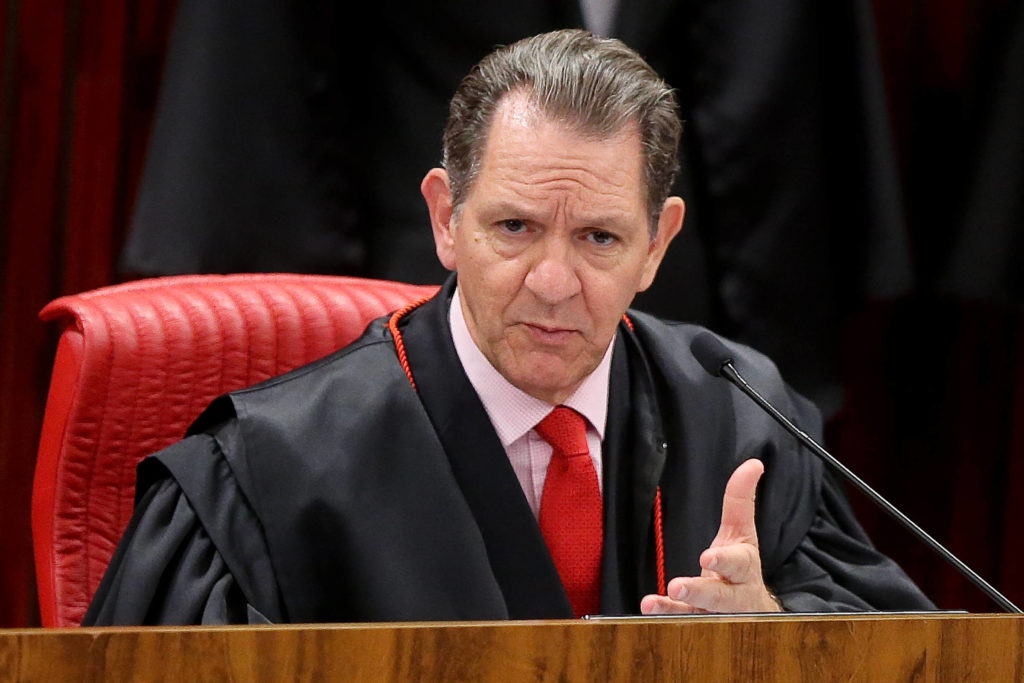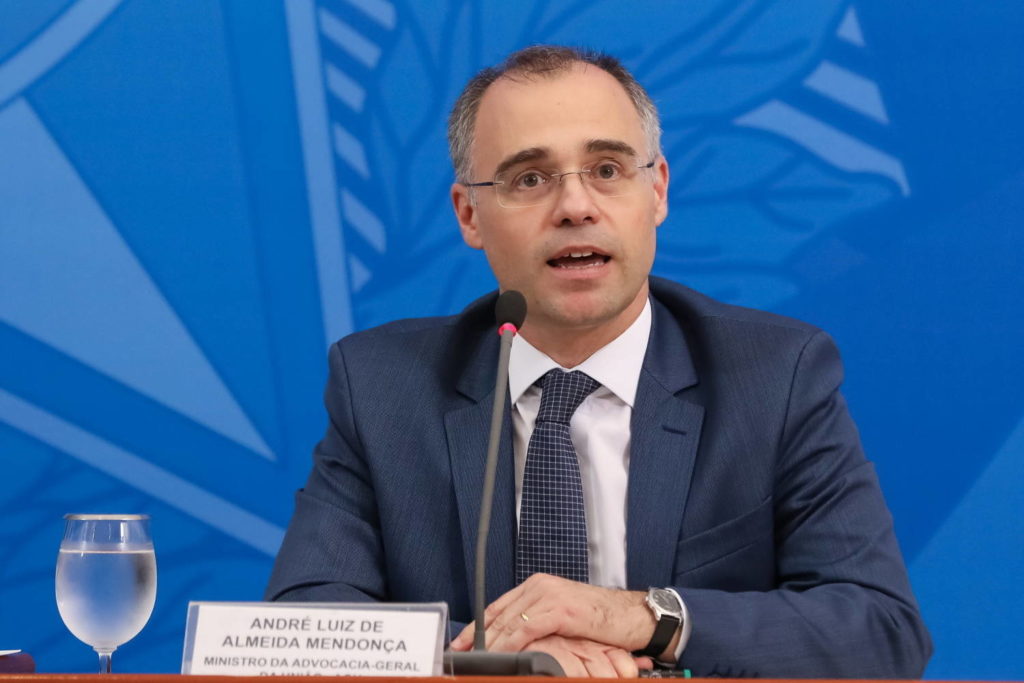RIO DE JANEIRO, BRAZIL – No one looks at a résumé to choose a Supreme Court (STF) Justice, but rather their political connections. This maxim circulating among experienced senators in Brasília has been considered more by the legal community than by the President of the Republic, Jair Bolsonaro. He is in charge of appointing Celso de Mello’s replacement in November this year and Marco Aurélio Mello’s replacement in July 2021. Both will leave the Court as they reach the age limit of 75 to serve in the Judicial Branch.

The selection of a replacement for Celso de Mello, the longest-serving Justice on the Court, will bear particular importance. He is the rapporteur of the case investigating whether Bolsonaro tried to politically interfere in the Federal Police, as ex-Minister of Justice Sérgio Moro charged when leaving office.
If the Justice does not complete this investigation within the next four months, his successor will inherit the position of rapporteur. So, while the President will want to try to please his base bu appointing someone who is conservative and “terribly evangelical”, numerous attorneys, judges, prosecutors, and first-tier members of the Bolsonaro government are engaging in a behind-the-scenes dispute to please the President and, in the medium term, secure his endorsement for them to join the country’s highest judicial body.
The prospect of approval by the senators, something the President has not yet included in his calculations, may be key, although in all of Brazilian history, legislators have rejected only five STF appointments, all in 1894, during the troubled times of President Floriano Peixoto’s government.
Among those now considered likely to be nominated for the STF is Federal Superior Court (STJ) Chief Judge João Otávio de Noronha, who granted the benefit of house arrest to Fabrício Queiroz, a longtime advisor and friend of the Bolsonaro clan. Also on the list is the current Minister of Justice, André Mendonça, who is suspected of using the public machine to monitor potential government opponents.
Other names frequently cited are Jorge Oliveira, the General Secretary of the Presidency, a long-time ally of the President, and Augusto Aras, the Federal Prosecutor General, who has been criticized for acting politically in conducting the Federal Prosecutor’s Office.

Noronha has increasingly become popular with Bolsonaro, who has said his relationship with him was “one of love at first sight”. In early July, the STJ chief granted a petition from Fabrício Queiroz, a former adviser to Flávio Bolsonaro and friend of the President, releasing him from prison and placing him under house arrest. The successful argument was the risk of coronavirus contamination in the prison where he was being held.
Queiroz is accused of coordinating a kickback scheme for the salaries of Flávio’s cabinet staff in Rio’s Legislative Assembly. During the same period in which Queiroz was granted house arrest, Judge Noronha analyzed 725 petitions with the same argument: he denied 700 of them, granted 18 and another seven were withdrawn.
In Mendonça’s case, Bolsonaro has already given him a few votes of confidence. The first was to “promote” him from Federal Solicitor General (AGU) to the Minister of Justice, replacing Sérgio Moro, Bolsonaro’s previous announced favorite for the Supreme Court. The second support was to accept Mendonça’s choice as Minister of Education. The new Minister, Milton Ribeiro, is a friend and political ally of Mendonça. Now, Mendonça is relying on him to map a group of 579 people (among public security agents and university professors) who are supposedly members of “anti-fascist movements”. The Federal Prosecutor’s Office granted the Ministry of Justice ten days to explain itself regarding this investigation.
In favor of Minister André Mendonça is the fact that he fits the “terribly evangelical” profile. He belongs to the Presbyterian church and his appointment would mean a nod to the evangelical wing of Bolsonaro supporters.
Jorge Oliveira’s principal advantage is his loyalty to the Bolsonaro family. The Minister is a law graduate and a reserve federal police officer. He was chief of staff to federal Deputy Eduardo Bolsonaro, the President’s son, for three years. He obtained the position because his father, Jorge Francisco, advised the President for 20 years. His lack of experience as a lawyer, however, weighs against him. Although he graduated with his law degree in 2006, he only became an attorney in 2013 and has defended few cases in court.
Augusto Aras was selected by Bolsonaro to head the Office of the Prosecutor General (PGR), even though Aras was not on the three-name list suggested by federal prosecutors after a vote. Further, on a live broadcast on his social media, Bolsonaro said he could be appointed to the Supreme Court if a third position were to emerge. The Prosecutor General, although politically active to reach the office, has already said he is uncomfortable with the President’s suggestion, and that he believes he’s reached the pinnacle of his career by becoming the head of the PGR.

The politicization of Brazil’s highest court is not new, but it has gained prominence in the past 15 years due to a growing role the Supreme Court has played in Brazil’s political debates. This new involvement has undermined the STF support, and turned it into a target of criticism from various political circles. The most recent ones are from Bolsonarists and the Presidential family. There are fake news inquiries at the STF against the Bolsonaro’s support for anti-democratic demonstrations and, in the President’s case, the suspicion that he interfered politically with the Federal Police.
“The difference between the government now and past ones is that, before, the political dispute for the position of STF Justice was hidden; now it’s out in the open. In addition to considering investigations involving the President’s relatives and supporters,” says Leonardo Barreto, a Ph.D. in political science. “Bolsonaro is the first president to instrumentalize the nominations. He says he will nominate someone because they have certain characteristics,” completes the University of Brasília (UnB) professor and president of the Brazilian Association of Political Science, Flávia Biroli.
Bolsonaro’s current power to nominate someone does not mean, in theory, that he will reap the rewards afterwards, since these nominations do not always work. “The logic among politicians is not to analyze a justice’s career. What he does afterwards, in his decisions, does not worry as much. Having a justice to call your own is what matters,” says Maria Pia Guerra, a professor of public law at UnB. In her opinion, the predictability of the justice’s performance emerges when there’s someone with a consolidated legal background, with academic output, books published or acting in court – as an attorney, judge, or member of the Prosecutor’s Office.
In her view, appointing someone with strong political support is a mistake for any President. “Once they are sworn in, you do not control justices. The case of the current Justice and the next Chief Justice Luiz Fux, who would have signaled acting in favor of cases involving members of the Workers’ Party, including ex-Minister José Dirceu, became notorious. According to Dirceu, Fux said in interviews: “I kill this subject inside my chest.” Fux, who has conceded his push for the position with leftists (he was then STJ Chief Judge and was nominated to the Supreme Court in 2011 by Dilma Rousseff), was harsh against all PT lawsuits in the Mensalão, and in the positions in favor of Lava Jato that penalized the party.
Second tier candidates
In a second tier among those usually listed for the STF are the names of STJ Judge Humberto Martins, Judge Ives Gandra Filho from the Superior Labor Court, and federal judges in Rio de Janeiro Marcelo Bretas and William Douglas. There is also a third tier, with reduced chances, for having support from part of the Government’s opponents and little access to the Planalto. This group is formed by STJ judges Herman Benjamin, Luís Felipe Salomão, and Mauro Campbell.
In addition to the STF posts, the President will also have the option of appointing two STJ judges, a court that will judge Queiroz and Flávio Bolsonaro’s appeals in the “salary splitting scheme” case. In December this year, judge Napoleão Nunes will retire, followed by Félix Fischer in August 2022.
The dispute in the STJ is also political, but it goes through a technical filter that prevents the President from directly choosing his favorite. Bolsonaro has to decide based on three-name lists submitted by the Court itself. The 33 seats in this court are divided as follows: 11 are for members of federal appellate courts, 11 for state appellate court judges, and the other 11 are divided alternately between attorneys and prosecutors. Therefore, in theory, a sitting federal judge should be appointed for Nunes’ seat, while a practicing attorney should be appointed to replace Fischer.
Source: El País

